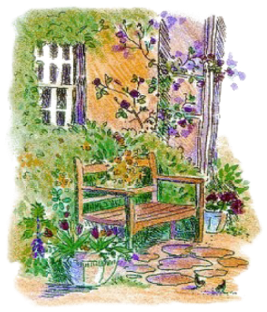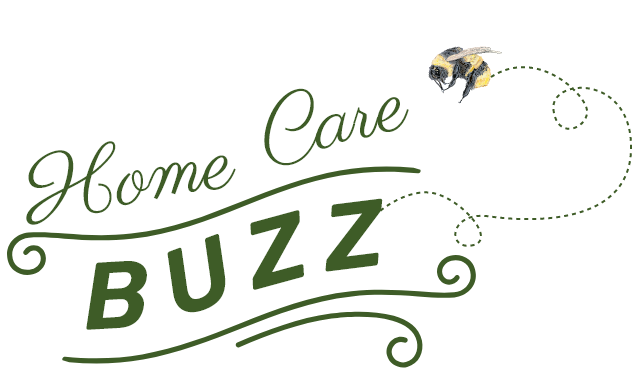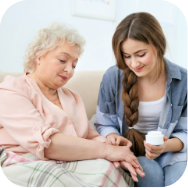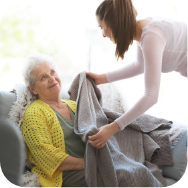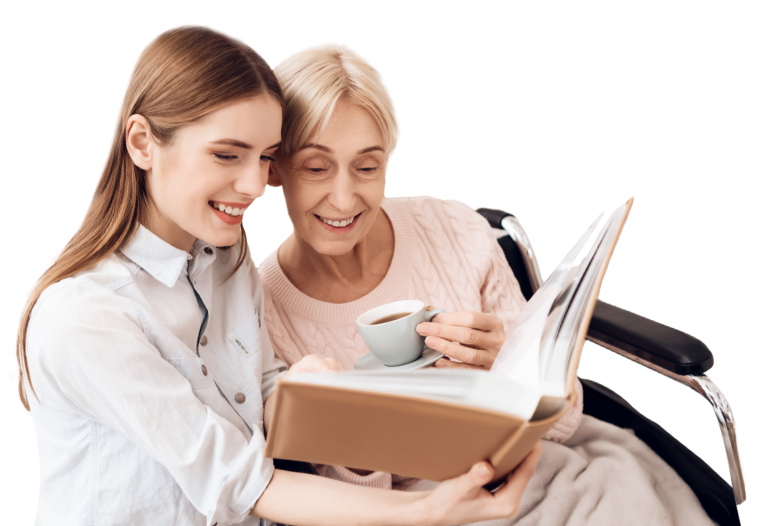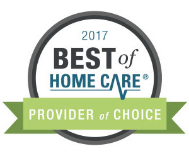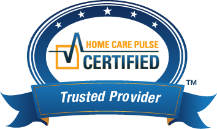Top 8 Fall Health & Safety Tips

With changes in weather and holiday events coming up, be aware of these fall safety tips. Taking such preventative measures can help create a more festive and fun season!
The top 8 fall health and safety tips can help make the most of the season while avoiding seasonal hazards. They range from lighting up indoor living spaces to ensuring outdoor fall safety.
Light Up Living Spaces
Since daylight hours dwindle in the fall, it is essential to keep the home well-lit. This can create a safer space by making tripping or slipping less likely.
Tips for lighting the living space and trafficked areas include the following:
- Place nightlights in bedrooms, hallways, or other areas that need to be accessible in the evening
- Put a lamp next to the bed within reach
- Create a clear, clutter-free path to the lighting device for lightswitches not placed near entrances
- Consider trading current lighting hardware for something easier to see, such as illuminated, remote, or glow-in-the-dark switches
- Store flashlights in accessible drawers and easy to store places
Discuss Concerns with a Doctor
Doctors are often aware of seasonal allergies and other safety concerns worth discussing regarding the fall season.
Everyday things to ask and discuss with your Doctor about fall include:
- Seasonal allergies
- Pain or preventative management associated with weather changes (i.e., joint pain, wound protection, appropriate outerwear)
- Supplements to take or changes in dosage or medication (i.e., vitamin D needs in the fall versus the summer)
- Safe exercises to do indoors
- Seasonal vaccines (i.e., seasonal flu vaccine)
- Safe hand-washing procedures
- Maintaining skin health and moisture in the fall
- How to safely navigate holiday eating or travel
Exercise & Eat Well in Autumn
With the seasonal changes of fall, regular workout routines may need to be adjusted.
For instance, outdoor and gym exercises might need to be swapped with at-home activity to decrease risks and avoid infection or illness. Chair exercises can be helpful for those needing to exercise at home or those with limited mobility.
There is naturally an increase in sugary treats and sweets available during the fall season, including all things pumpkin spice! While seasonal foods can still be enjoyed, one should maintain a healthy dietary regimen during the holidays.
Focus on the following tips for healthy eating and healthy aging:
- Focus on eating nutrient-dense foods
- Choose a variety of foods from all the ChooseMyPlate food groups
- Talk to a Registered Dietitian Nutritionist about questions concerning eating and healthy aging
- Understand protein and its role in healthy aging
- Learn about services that provide and deliver balanced nutrition, such as Meals on Wheels
Remember Fall Footwear
Certain footwear choices can increase the risk of getting hurt. Shoes with little or no traction, slippers, heels, and sandals are not items well-suited for the fall.
Here are supportive footwear features to look for this fall:
- Sturdy
- Non-skid
- Properly fitting
- Reduce joint pain (as needed)
- Suitable for rain
Consider Assistive Devices
Since the ground can be slippery or wet, consider keeping assistive devices on hand. These minor adjustments can make a big difference when it comes to staying safe in the fall.
Some assistive devices and accessories to consider include:
- Walker
- Cane
- Wheelchair
- Backup batteries for medical devices
- Assistive railing in the home
- Handrails for stairways
- Treads for steps that may get slippery
- Installing or purchasing a medical alert system
Be Aware of Seasonal Depression
Seasonal Affective Disorder (SAD) is a kind of depression that occurs in a seasonal pattern. SAD most commonly occurs in the late fall and early winter.
The human body reacts to external changes in the environment. For some, the change in seasons can trigger a period of depression that is not present in spring or summer.
While younger people tend to be at higher risk, older adults should also recognize the signs, symptoms, and risk factors.
Risk factors for SAD may include:
- Living far from the equator
- Family or personal history of depression
- Women
- Low levels of vitamin D
A physician and dietitian can help navigate healthy holiday eating, medication, and supplements that may help alleviate the impact of SAD.
Protect the Immune System
During the aging process, certain factors can weaken the immune system. This makes it more difficult to defend the body from bacteria, other serious illnesses, or infections.
Aging may also affect the digestive system, which is linked to maintaining bacterial balance. Other body systems can experience the effects of getting older, causing the body to be more vulnerable.
It is imperative to be mindful of certain healthcare conditions that may increase susceptibility to seasonal sickness during the fall.
Conditions that may affect the immune system include:
- Chronic illness
- Diabetes
- Arthritis
- Cancer
- Heart disease
Some medications can also compromise the immune system, so make a point to review them with a healthcare professional.
Other ways to support immune health include maintaining a regular sleep schedule, eating a balanced diet, exercising regularly, and managing stress.
Combat Home Hazards
In the fall, heating systems pose a home fire hazard. Also, carbon monoxide dangers rise as temperatures decrease and furnaces, space heaters, and fireplaces are used.
Experts suggest hiring a specialist to check on heating systems, pipes, and other devices or structures such as smoke alarms and carbon monoxide detectors. Also, always read instructions on heating devices to make sure they operate safely.
The general guidance for safely operating a heating device include:
- Never leave the device unattended
- Leave at least three feet between the device and anything flammable, such as a wall or curtains
- Ask for help in understanding how to operate or install these devices
- Hire a specialist to check on the heating system
Overall, these fall safety and health tips help make the season a more enjoyable experience for older adults and their loved ones.
In such a season of celebration, the small investments in safety are worth the more significant health benefits. And, most of all, having peace of mind.


